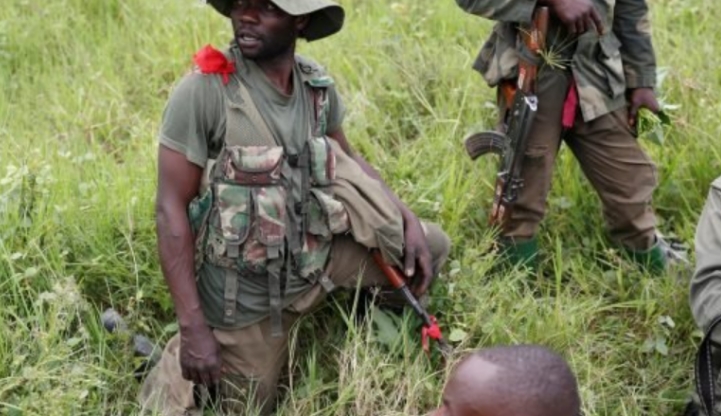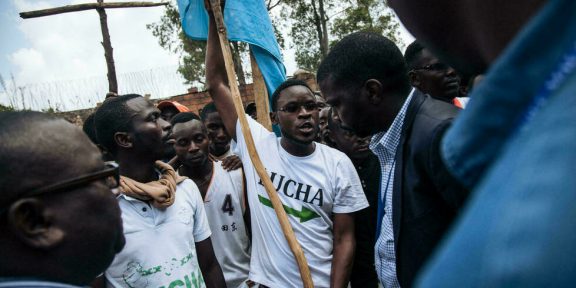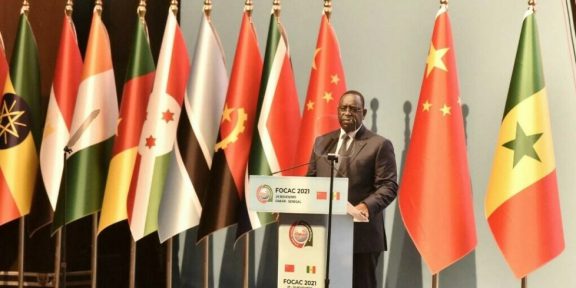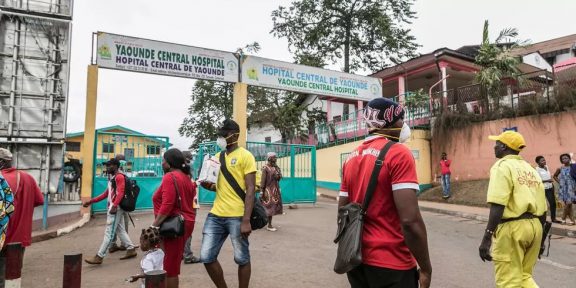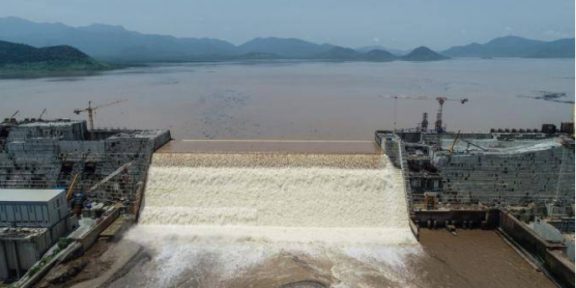While the US has listed the Allied Democratic Forces (ADF) as a terrorist group that has pledged allegiance to the Islamic State (IS), the relationship between the two groups remains unclear, says Jason Stearns, director of the Congo Research Group (CRG).
Is the Islamic State (IS) really operating in eastern DRC? Since April 2019, the terrorist organisation has claimed responsibility for an increasing number of attacks in the country. But the reality of its relationship and involvement alongside the Allied Democratic Forces (ADF) has been the subject of fierce debate.
Washington, for its part, has come to a conclusion. On 11 March, the US authorities announced that they were placing this Ugandan armed group, which has been active in the DRC since the mid-1990s, on the list of terrorist groups affiliated with IS.
The US State Department says that “ ‘ISIS-DRC’ – or ADF, or Madina at Tauheed Wau Mujahedeen (MTM), among other names – is responsible for numerous attacks in the provinces of North Kivu and Ituri, in eastern DRC.”
Operating mainly in the Beni region (North Kivu), the ADF is “responsible for more civilian deaths (37%) than any other armed group”, according to the Kivu Security Tracker’s latest findings.
However, the relationship between this group and IS remains largely unclear. Although DRC’s President Félix Tshisekedi says that “the ADF subscribes to the terrorist ideology advocated by the Islamic State”, the UN Group of Experts on the DRC’s December 2020 report states that it has not been able to confirm any direct link between the two organisations.
Jason Stearns, director of the Congo Research Group (CRG), which is attached to New York University, explains to us the relationship between the two groups.
Washington has just placed the ADF on the list of groups that have pledged allegiance to IS. What does this mean in regards to the US and the international community’s approach in general towards this organisation?
Jason Stearns: Generally speaking, the fact that the US believes that the ADP has links to IS may change the group’s policy somewhat. We’re already seeing this in their increased support for the Congolese army. But this positioning can also have its disadvantages. The more IS is perceived as the enemy in eastern DRC, the more other factors contributing to the conflict there are neglected.
If the threat is perceived to be from an armed Islamist extremist group, one is more likely to use a purely military approach to resolve the problem. For example, by supporting the Congolese army, or by accepting or even encouraging collaboration with neighbouring Uganda in military operations.
What would be the problem with such an approach?
This approach could have negative repercussions. The Congolese state is a key actor in the eastern part of the country. Its weakness, and sometimes complicity, can exacerbate local conflicts. The more one relies on a military response, the more one risks undermining the state’s accountability towards its citizens.
The same applies to Uganda. President Museveni has long been trying to sweep aside criticism of his authoritarianism by supporting Western powers in their fight against radical Islam in Africa. So there are great dangers.
Sanctions are not a problem, but the tendency of associating the violence occurring in Beni exclusively with the actions of Islamist terrorists ignores the other factors that could be contributing to it, which include state weakness and local conflicts.
Finally, this approach hinders the possibility of negotiating with the ADF. It is an extremist group that is guilty of abhorrent violence. But what we have observed since 2014 is that there is a very strong correlation between military operations against the ADF and reprisals against the population. The more we focus on the military aspect, the more we risk reinforcing this dynamic.
How old is the ADF and IS’ relationship?
George Washington University’s recent report states that their relationship began around 2017, or even 2018, and that it was formalised in 2019. But establishing links is one thing. Saying that the ADF is under IS’ operational control is quite another.
Source: The Africa Report

